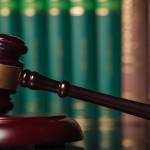It may not be the world’s most serious crime, but if you are accused of indecent exposure, it can be genuinely embarrassing and shameful. You will need to be advised and represented by a Long Island criminal defense lawyer, and you will need to contact that lawyer as quickly as possible.
An indecent exposure charge can apply when someone is accused of “flashing,” urinating, or masturbating in public or when people engage in sexual behavior in a public setting. But in New York, can you be charged with indecent exposure for your behavior on your own property?
If you will keep reading this brief discussion of New York’s indecent exposure laws and your rights, you will learn the answers you may need, and you will also learn how a Long Island indecent exposure attorney can help if you are charged with indecent exposure.
What New York Laws Address Indecent Exposure?
Under New York state law, three different charges address indecent exposure:
- Exposure of a person (Penal Law Section 245.01)
- Public lewdness (Penal Law Section 245.00)
- Public lewdness in the first degree (Penal Law Section 245.03)
The most common reason why people are arrested for indecent exposure is answering the call of nature after too many drinks. A person may be guilty of indecent exposure if he or she can be seen publicly in a way that the person’s “private or intimate parts” are exposed.
The law doesn’t define intimate or private parts, with this exception: For women, intimate or private parts include the “portion of the breast which is below the top of the areola.” The law doesn’t apply to breastfeeding an infant or to plays, exhibitions, shows, or other entertainments.
How Are Indecent Exposure Charges Handled?
Exposure is a “violation” rather than a misdemeanor or felony in New York. This means the charge cannot lead to a criminal conviction or create a criminal record. Violations are penalized with a brief jail sentence or a fine, and in many cases, offenders are sentenced to time served.
That is the state law, although local jurisdictions in New York have the discretion to adopt and enforce stricter indecent exposure laws.
What is the Definition of Public Lewdness?
How is public lewdness defined? Public lewdness in New York happens in these three situations:
- When someone exposes the intimate or private parts of his or her body in a lewd manner, or commits another lewd act, intentionally and in public.
- When someone exposes the intimate or private parts of his or her body in a lewd manner, or commits another lewd act, on private premises but intentionally and in a way that the person may be seen from a public location or another private location.
- When someone exposes the private or intimate parts of his or her body in a lewd manner while trespassing, or commits another lewd act while trespassing, and that person may be observed by the property owner, a tenant, or anyone else who is lawfully on the property.
How Do Public Lewdness Laws Define “Public” Places?
No definition of the phrase “public place” is found in the text of New York’s public lewdness laws, but the courts in this state have determined that “public places,” for the purposes of New York’s public lewdness laws, include but are not limited to:
- arenas, theaters, and stadiums
- bars and nightclubs
- parks
- public restrooms
- schools
- the interior of a person’s vehicle
What if You Were in Your Home?
In New York, any exposure or lewdness in a public place may constitute a violation of the law, but the question “Can you be charged with exposure or public lewdness on your own property?” is more complicated than you may think and can only be answered on a case-by-case basis.
Charges for exposure or lewdness depend on where the “perpetrator” is and the intent of his or her behavior or nudity. Generally speaking, even in our homes, everyone is obligated to refrain from exposure or lewd behavior that may easily be seen from outdoors or from the street.
Intentional exposure or lewd behavior, even in your own home or on your own property, is unlawful if your intention is to be seen by and to shock or offend neighbors or strangers. If others can easily see you exposed or behaving lewdly, you may be charged.
Public lewdness in New York is usually charged as a Class B misdemeanor that may be penalized upon conviction with jail or probation. In some public lewdness cases, the court may also order the offender to attend counseling, receive treatment, or perform community service.
What is First-Degree Public Lewdness?
Public lewdness in the first degree is the charge when the perpetrator of the public lewdness is age nineteen or older and intends to be seen by a person who is under sixteen years old.
Public lewdness in the first degree is a Class A misdemeanor that may be penalized upon conviction with jail or probation. Again, in some cases, the court may also require counseling, treatment, or community service.
A conviction for exposure, public lewdness, or first-degree public lewdness does not require registration as a sex offender under New York’s Sex Offender Registration Act.
How Can You Fight Exposure or Lewdness Charges?
In public lewdness and indecent exposure cases, sometimes mental illness or intoxication may be offered as a defense or offered as a mitigating circumstance. In many cases, an offender with no previous convictions may be sent for treatment or ordered to perform community service.
If you are charged with exposure or public lewdness and you are innocent, make your innocence clear from the start to your Long Island indecent exposure attorney. Your lawyer will fight for your acquittal and will ensure that your case is brought to its best possible outcome.
If you have been charged with public lewdness or indecent exposure on Long Island or in New York City, put a Long Island criminal defense lawyer to work for you as quickly as possible after you’ve been charged with one of these crimes.
After reviewing the charge, your lawyer will explain how the law applies in your own case, outline your options, and develop the most effective possible defense strategy on your behalf. If you are charged with any of these crimes, seek a defense attorney’s advice and services at once.














Comments are closed.